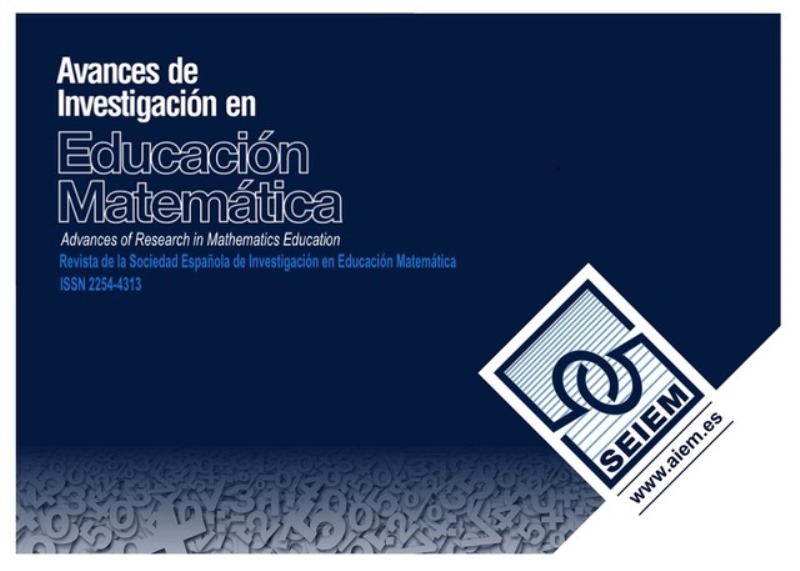Initiation to the algebraic language in multilingual classrooms: contributions from an ongoing project
DOI:
https://doi.org/10.35763/aiem.v0i3.59Keywords:
ArrayAbstract
The goal of the reported study is to analyze the influence of learning mathematics in a non dominant language on the construction of the algebraic language. Data come from classes in Barcelona with Latin American students. I present results on mathematical difficulties and opportunities related to learning in a L2. The main thesis is that the teaching of mathematics in a language other than the student’s has an impact on learning, not necessarily adverse or beneficial. Two cases are illustrated. One case shows how a student uses geometric reasoning to model an algebraic expression, but takes a linguistic content to wrongly provide a guarantee to an argument. The other case shows how well another student downplays the differences between two algebraic expressions, but has difficulty making sense of the algebraic language due to an imprecise translation.Downloads
Download data is not yet available.
Downloads
Published
2013-05-03
How to Cite
(2013). Initiation to the algebraic language in multilingual classrooms: contributions from an ongoing project. Advances of Research in Mathematics Education, (3), 25–44. https://doi.org/10.35763/aiem.v0i3.59
Issue
Section
Artículos
License
The articles published in this journal are under a license Creative Commons: By 4.0 España from number 21 (2022).
Authors who publish with this journal agree to the following terms:
- Authors retain copyright and keep the acknowledgement of authorship.
- The texts published in this journal are – unless indicated otherwise – covered by the Creative Commons Attribution 4.0 international licence. You may copy, distribute, transmit and adapt the work, provided you attribute it (authorship, journal name, publisher) in the manner specified by the author(s) or licensor(s). The full text of the licence can be consulted here: http://creativecommons.org/licenses/by-nc/4.0.
- Authors are able to enter into separate, additional contractual arrangements for the non-exclusive distribution of the journal's published version of the work (e.g., post it to an institutional repository or publish it in a book), with an acknowledgement of its initial publication in this journal.
- Authors are permitted and encouraged to post their work online (e.g., in institutional repositories or on their website) prior to and during the submission process, as it can lead to productive exchanges, as well as earlier and greater citation of published work (See The Effect of Open Access).









